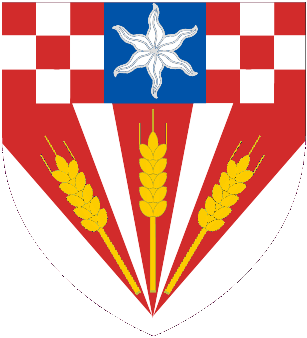John Boyd Orr
John Boyd Orr, 1st Baron Boyd-Orr (23 September 1880 – 25 June 1971), was a Scottish biologist, physiologist, and politician who received the Nobel Peace Prize in 1949 for his scientific and humanitarian contributions. Orr's work spanned several fields, but he is most renowned for his efforts in nutrition and global food policy, which significantly impacted international public health and led to the establishment of the United Nations Food and Agriculture Organization (FAO).
Early Life and Education[edit | edit source]
John Boyd Orr was born in Kilmaurs, Scotland. He was educated at the University of Glasgow, where he graduated with a degree in medicine in 1902. Orr's interest in nutrition began during his postgraduate studies, which led him to research the effects of poor diet on children's health and development.
Career[edit | edit source]
Orr's early work involved studying the physiology of nutrition, which laid the groundwork for his later efforts in addressing global food security. During World War I, he served as a lieutenant in the Royal Army Medical Corps, where he witnessed the impacts of malnutrition among soldiers and civilians, further fueling his interest in nutrition.
After the war, Orr became the director of the Rowett Research Institute in Aberdeen, Scotland, where he conducted groundbreaking research on animal nutrition. His work at the Rowett Institute led to significant advancements in understanding the nutritional requirements of humans and animals, influencing agricultural practices worldwide.
In the 1930s and 1940s, Orr expanded his focus to the global stage, advocating for improvements in global food distribution and nutrition. He played a pivotal role in the establishment of the FAO in 1945, serving as its first Director-General. Orr's vision for the FAO was to eliminate hunger and improve nutrition worldwide, a goal that remains central to the organization's mission today.
Nobel Peace Prize[edit | edit source]
In 1949, John Boyd Orr was awarded the Nobel Peace Prize for his work in combating hunger and promoting peace through food security. His Nobel Lecture, titled "The Role of Science in the Peaceful Development of the World," highlighted the importance of scientific knowledge in solving global challenges.
Later Life and Legacy[edit | edit source]
After retiring from his international duties, Orr continued to advocate for global food security and peace. He was elevated to the peerage as Baron Boyd-Orr of Brechin Mearns in 1949.
John Boyd Orr passed away on 25 June 1971. His legacy is remembered through the continued work of the FAO and the numerous awards and institutions named in his honor, including the John Boyd Orr Centre for Population and Ecosystem Health at the University of Glasgow.
Orr's contributions to nutrition, public health, and international diplomacy have left an indelible mark on the world, demonstrating the critical role of science and cooperation in addressing global challenges.
| This article is a medical stub. You can help WikiMD by expanding it! | |
|---|---|
This article is a Nobel Prize-related stub. You can help WikiMD by expanding it!
Search WikiMD
Ad.Tired of being Overweight? Try W8MD's physician weight loss program.
Semaglutide (Ozempic / Wegovy and Tirzepatide (Mounjaro / Zepbound) available.
Advertise on WikiMD
|
WikiMD's Wellness Encyclopedia |
| Let Food Be Thy Medicine Medicine Thy Food - Hippocrates |
Translate this page: - East Asian
中文,
日本,
한국어,
South Asian
हिन्दी,
தமிழ்,
తెలుగు,
Urdu,
ಕನ್ನಡ,
Southeast Asian
Indonesian,
Vietnamese,
Thai,
မြန်မာဘာသာ,
বাংলা
European
español,
Deutsch,
français,
Greek,
português do Brasil,
polski,
română,
русский,
Nederlands,
norsk,
svenska,
suomi,
Italian
Middle Eastern & African
عربى,
Turkish,
Persian,
Hebrew,
Afrikaans,
isiZulu,
Kiswahili,
Other
Bulgarian,
Hungarian,
Czech,
Swedish,
മലയാളം,
मराठी,
ਪੰਜਾਬੀ,
ગુજરાતી,
Portuguese,
Ukrainian
Medical Disclaimer: WikiMD is not a substitute for professional medical advice. The information on WikiMD is provided as an information resource only, may be incorrect, outdated or misleading, and is not to be used or relied on for any diagnostic or treatment purposes. Please consult your health care provider before making any healthcare decisions or for guidance about a specific medical condition. WikiMD expressly disclaims responsibility, and shall have no liability, for any damages, loss, injury, or liability whatsoever suffered as a result of your reliance on the information contained in this site. By visiting this site you agree to the foregoing terms and conditions, which may from time to time be changed or supplemented by WikiMD. If you do not agree to the foregoing terms and conditions, you should not enter or use this site. See full disclaimer.
Credits:Most images are courtesy of Wikimedia commons, and templates, categories Wikipedia, licensed under CC BY SA or similar.
Contributors: Prab R. Tumpati, MD



